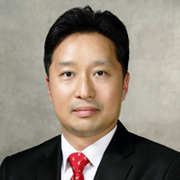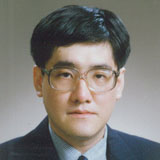Background
In January 2015, South Korea launched its Emissions Trading System (SK ETS) modeled on the European Union Emissions Trading System (EU ETS). It has become the second largest ETS in operation after the EU ETS. In the Kyoto Protocol, “flexible mechanisms” were introduced to lower the overall costs of achieving its mitigation target. These mechanisms include Clean Development Mechanism (CDM), Joint Implementation (JI), and Emissions Trading. At the Durban COP-17 in 2011, it was decided to establish a new international market mechanism (NMM) under the United Nations Framework Convention on Climate Change (UNFCCC) to complement the existing carbon market mechanism for years beyond 2020. Its details will be negotiated and worked out at upcoming meetings. We use the term “international carbon markets” collectively to refer to the existing mechanism such as ETS, voluntary markets as well as other mechanisms which are yet to take shape.
Against the backdrop of these developments, it is of paramount importance to see how South Korea can meet its mitigation target for 2030 on its own as well as working with another country with the information available. In this report, we examine the economic impacts of meeting South Korea’s mitigation target on its own, via international carbon markets, or when linked to China, the EU and Mexico’s carbon markets.
Key findings: Linking South Korea’s carbon market to international carbon markets would lower mitigation costs
• Using the Capri (Carbon Pricing) model, we quantified and analyzed various scenarios to meet South Korea’s carbon mitigation targets.
• The results clearly show that linking South Korea’s carbon market to international carbon markets can significantly reduce the costs of mitigation (see Section 2).
• The actual market dynamics will depend on the country that South Korea links its market with. For example South Korea would be a net seller of carbon credits to the EU, but a net buyer of carbon credits from China (see Section 3).
• The benefits of linking the SK ETS to carbon markets in similar countries, such as Mexico, would be less significant. The reason is that similar circumstances mean that the opportunities for trade would be smaller, as both countries would likely find it cheaper to achieve their mitigations domestically.
Recommendations: Link South Korea’s ETS to other carbon markets, beginning with low-risk pilots with voluntary carbon markets
• The results suggest that South Korea may benefit from linking its carbon market with those of other countries: this can lead to considerable cost reductions.
• However, experience shows that linking separate carbon markets is a complex challenge and may take several years to implement.
• A quick and low risk strategy to link South Korea’s carbon market to international markets is to run pilots linking South Korea’s carbon market with international voluntary markets. This could be a short/mid-term solution, a ‘stepping stone’ strategy that would offer learning opportunities. This could be complementary to the more complex process of linking the SK ETS with other major compliance markets.
• Also, linking South Korea’s carbon market with voluntary markets in developing countries would have several economic and geopolitical advantages:
– Create and enter new markets in fast growing developing countries.
– Raise South Korea’s standing, and gain concrete influence, in developing countries.

 Facebook
Facebook Twitter
Twitter

